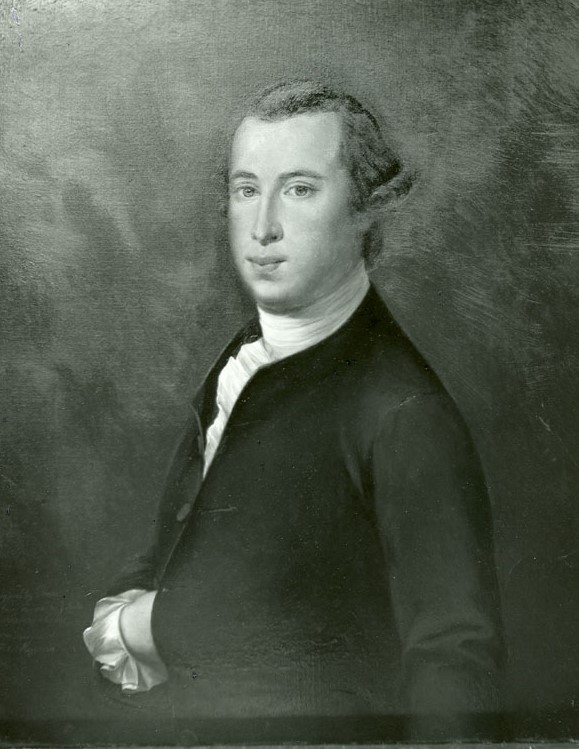
Portrait of Thomas Heyward, Jr. courtesy of the South Carolina Historical Society.
Thomas Heyward, Jr. was an active leader in South Carolina during the American Revolution. Born at his father’s plantation in St. Helena’s Parish on July 28, 1746, he was the oldest son of Daniel and Maria Heyward. Thomas’ uncle was also named Thomas, so the younger added “Jr.” to his name. He was educated at home and then studied law at the Middle Temple in London. It has been written that Heyward became disillusioned with European opulence during his time abroad and he returned to South Carolina in 1771 convinced that the colonies needed to separate from Great Britain. That same year, he was admitted to the Charleston Bar and elected to the Commons House of Assembly.
In 1773, Heyward married Elizabeth Matthews. By 1774, he was active in the Patriot cause. In July of that year, the leading men of South Carolina met in Charleston and formed the Committee of Ninety-Nine, which called for the formation of the First Provincial Congress of South Carolina. Heyward served in both the First and Second Provincial Congresses and was one of thirteen men asked to serve on the Council of Safety. In 1776, the 29-year-old Heyward was elected to the Continental Congress. The following summer, he was one of four South Carolinians who signed the Declaration of Independence.
After serving in Congress for two years, Heyward returned to South Carolina in 1778 and was appointed a circuit judge. He also served as captain in the Charleston Artillery Company. In that capacity, he received a bullet wound during the defense of Port Royal Island in 1776, but recovered. The following fall he was captured when the British took Charleston. After his capture, Heyward was imprisoned at St. Augustine. During his time in prison, legend has it that Heyward composed a new version of “God Save the King,” that was titled “God Save the States, Thirteen United States, God Save them All.” The song was a popular hymn in Charleston churches.
After his imprisonment, Heyward was sent to Philadelphia to be exchanged. His wife Elizabeth, pregnant with their sixth child, travelled to Philadelphia to join him and died in childbirth while there. Heyward returned to South Carolina in 1782 and was elected to the state’s Fourth General Assembly. In 1786, he married Elizabeth Savage. Continuing his activity in politics, he supported the federal Constitution and served as a member of the state convention that ratified that document in 1788. In 1790, he retired from political activity in order to focus on his plantation in St. Luke’s Parish. He remained active in the Agricultural Society of South Carolina and served as the first President of that organization. Heyward died on April 22, 1809.